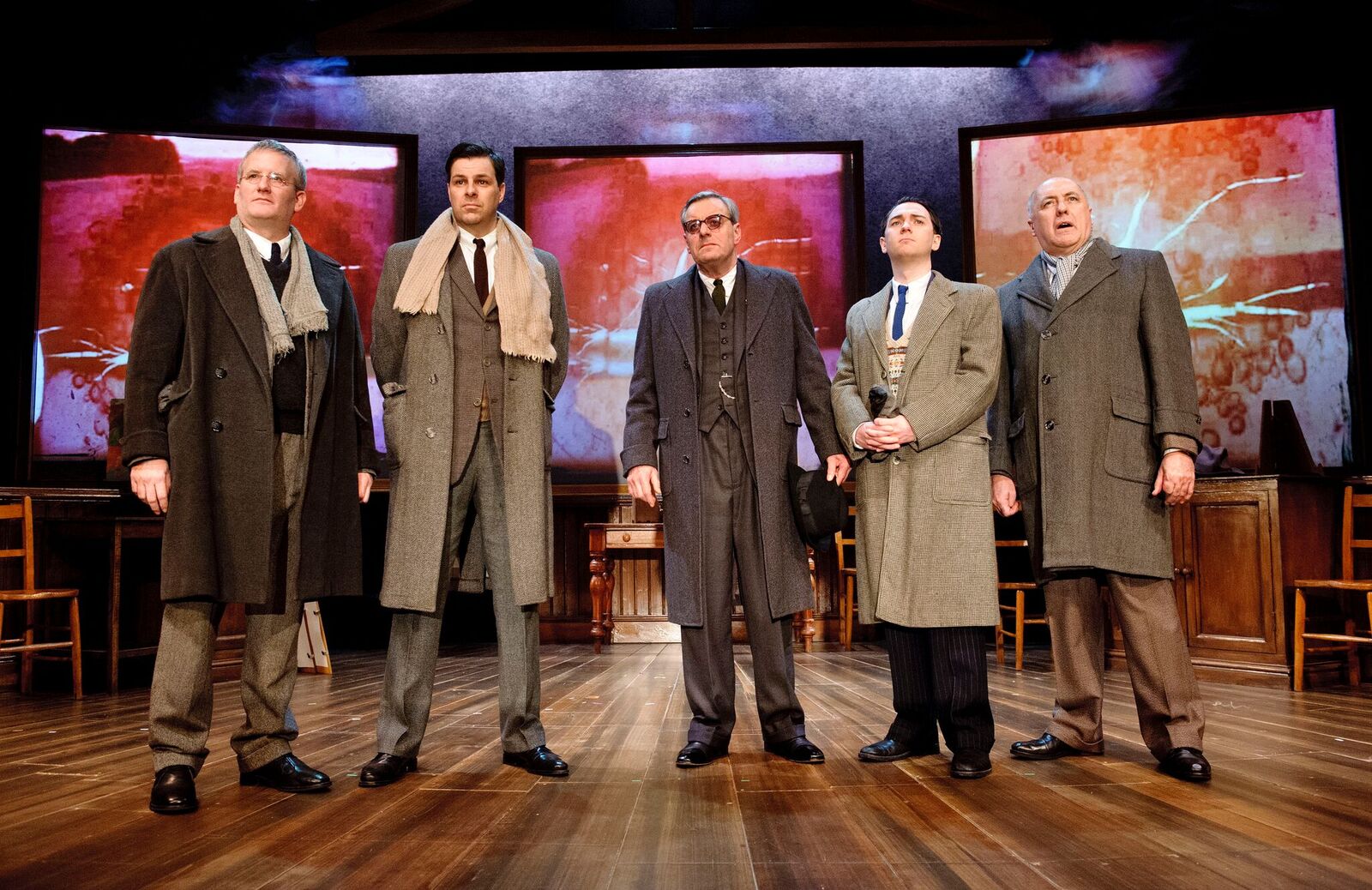Based on a true story, The Pitmen Painters is the true story of the Ashington Group: a group of ordinary, hard working mining men in the 1930’s who, by taking up art lessons one Tuesday evening, changed their lives.
As James Quinn’s character Harry explains in the play, “Most of us left school at eleven,” so they valued weekly sessions from The Workers Educational Association. It was one day in 1934 that they decided to try some education in art, and invited Master of Painting Robert Lyon to instruct them.
It was soon found, though, that showing slides of the great works of renaissance painters to a group of people completely unversed in art was pretty much useless. At last night’s opening performance, amidst many unfathomable accent puns (‘renaissance’ versus ‘rennaaiiisance’) and debates on what any painting ‘actually means’, Cliff Burnett who plays Robert Lyons, has the brainwave to teach the men my getting them to create their own art.
Little does he know at this point that he’s got huge task on his hands; a roller coaster of emotional trauma at starting mining work as mere boys, surviving the First World War Battle of the Somme, the depression meaning that young men grew up without the prospect or incentive of work, Marxist theology, and a huge class war. Is art just meant for the upper classes? 
In asking what is the meaning of art, this play makes us evaluate the arts as a whole. Does it actually have a meaning? Must it mean anything? As The Pitmen Painters begin to explore themselves, to look around them and within, they discover what they are, what they could be and develop an entirely new future for themselves. Indeed, the original paintings by these men are still hanging in galleries today.
Jim Barclay is engaging and likeably frustrating as George, self proclaimed leader of the group and all round stick in the mud for protocol, rules and regulation. Hilarity ensues when the group are presented with a nude model for their art class and many audience members feared for dear George’s blood pressure.
Playing Jimmy, comedian Micky Chochrane is immensely funny, with gallant determination to that thick Northumberland accent (‘dae’ instead of ‘do’ and ‘ye’ instead of ‘you’) and plays his part with a kind of jack the lad charm. He also has a habit of choosing certain people in the audience to direct his dialogue to, taking key moments to the next levels of comedy, satire and sentiment, and allowing audience feel very much involved in the show.
Simeon Truby, serving as Musical Director as well as playing Oliver in the show, deserves much praise. Truby’s is a very well delivered performance which allows us to empathise with the working classes to the point where we genuinely feel resentment at Helen Kay’s character Helen Sutherland when she proclaims, “It’s not your fault you’re working class, or that you live here.”
At many points, the really likeable features of this play are not focused on what is revealed or said, but what is not. Spirituality, sexuality and friendships fraught with competition and class divides are all dealt with subtly, very much in the way they might have been in the 1930s and 40s. This sensitivity to the authentic, while making sure the final performance doesn’t come across archaic has been worked on hard and the end result is a testament to the no doubt many hours of rigour required to produce this quality.
As this story is a part of northern English history, many already know the ending. But whether you do or don’t, take the time to explore the story though these actors in their funny, feel-good and moving tale of extraordinary achievements from ordinary people.
Reviewer: Natalie Romero
Reviewed: 5th February 2016

